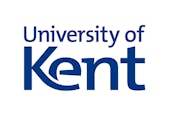Philip Cunliffe joined the School in 2009 after completing his doctorate in War Studies at King's College London. His doctoral research, which was funded by the ESRC, examined developing countries' personnel contribution to United Nations peacekeeping operations across 1997-2007. His third book Legions of Peace: UN Peacekeepers from the Global South, which is based on his doctoral research, was published in 2013.
Previously Philip taught in the Defence Studies and War Studies departments of King's College London. Prior to his doctoral study, he completed his Master's in International Politics at Aberystwyth and read Politics, Philosophy and Economics at Somerville College, Oxford. In 2008 Philip was appointed to provide reports on Western Balkan politics for the Economist Intelligence Unit. He contributes regularly to the international media and has broadcast on local radio stations as well as BBC Radio 4, Al Jazeera, Russia Today and Press TV. He blogs at www.thefirstphilippic.wordpress.com and tweets @thephilippics
Within the School, Philip is responsible for convening the School's weekly 'Open Forum' for students and for overseeing the School's research ethics procedures. He also chairs the School's ESRC DTC committee. Philip convenes the Violence Research Network as of 2014/15, which will bring together a range of researchers investigating violence across the university.
Philip's current research involves three streams: one stream examines the changing dynamics of humanitarian intervention since the end of the Cold War through to today's debates over intervening in the Syrian civil war. This research will be published as a monograph by Bloomsbury in 2016. The second stream, entitled 'The Globalisation of Military Wilsonianism' examines the links between developing countries' role in post-Cold War peacekeeping and traditions of liberal militarism, intervention, imperial internationalism and military rule. He is working on several papers and collaborative projects connected with this project. These papers variously analyse the behaviour of peacekeeping states and attempts to theorise contribution to peacekeeping missions. Philip's third stream of research involves him convening the annual thematic focus project for the Conflict Analysis Research Centre over the 2014/15 academic year. This collaborative project is entitled 'Theory and Method for a World with Less Violence'. Philip is also working on two side projects, one examining the relevance of the inter-war history of the Comintern for post-war international politics and theories of international organisation, and a collaborative project examining the relevance of Marxist theories of 'primitive accumulation' for understanding the dynamics of contemporary violence.
Beyond these specific projects, Philip is broadly interested in IR theory, critical theory, theories of sovereignty, debates concerning the decline in political violence and theories of social development.
Experience
-
–presentSenior Lecturer in International Conflict, University of Kent
- Website
- Article Feed
- ORCID
- Joined


